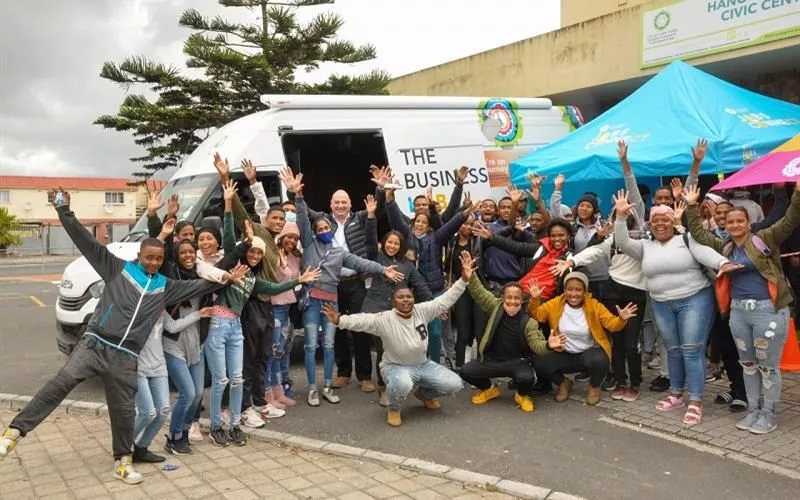Cape Town is taking proactive measures to combat the Polyphagous Shot Hole Borer Beetle infestation, providing free educational sessions for businesses and property owners to identify and manage infested trees and safely handle beetle-infested biomass. The inclusive training covers preventive measures such as equipment handling, transportation of green waste, and disposal of infested biomass aimed at controlling the spread of the beetle. The initiative is crucial since by mid-November, the city’s lush neighborhoods collectively reported 350 sightings of trees infested with the pest, which poses a significant threat to Cape Town’s urban woodland.
Cape Town’s Proactive Measures to Combat the Polyphagous Shot Hole Borer Beetle Infestation
Free educational sessions for identifying and managing trees infested with beetles and safely handling and transporting beetle-infested biomass are being provided by Cape Town. Inclusive training sessions cover preventive measures such as identifying infested trees, management and disposal of infested biomass, transportation of green waste, and proper equipment handling to prevent the spread of the pest, aimed at empowering businesses and property owners to control the spread of the beetle.
Cape Town’s Proactive Measures
In response to the escalating issue surrounding the invasive species known as the Polyphagous Shot Hole Borer Beetle (PSHB), Cape Town has launched a laudable initiative. The city is providing free educational sessions for businesses associated with planting and vegetation. The primary goal of this initiative is to empower both formal and informal businesses with the skills and knowledge necessary to identify and manage trees infested with beetles, and to safely handle and transport beetle-infested biomass.
These preventative and educational sessions have been timed perfectly to combat the growing reports of infestations. By the middle of November, the city’s lush neighborhoods of Newlands, Rondebosch, Mowbray, Claremont, Kenilworth, and Observatory along the Liesbeek River collectively reported 350 sightings of trees infested with the pest. Even more alarming is the Helderberg region, where over 4,600 infested trees have been documented since 2019.
The city is not confining the training to professionals who work with infested plant matter but is also extending an invitation to the general public. This inclusive approach highlights the severity of the situation and the shared responsibility to control the spread of the beetle, which presents a significant threat to Cape Town’s urban woodland.
Training and Empowerment
The training sessions are scheduled to occur at the Dulcie September Civic Centre Main Hall in Athlone and Charles Morkel Hall in Strand. Attendees will receive a wealth of knowledge about the beetle, including its method of dispersal, the risks it presents, and a record of infestations in Cape Town.
Given the beetles’ tendency to attach themselves to clothing, vehicle cracks, and gardening equipment, the training will encompass a wide range of preventive measures. These include the identification of infested trees, management and disposal of infested biomass, transportation of green waste, and proper equipment handling to prevent the spread of the pest.
The training sessions provide not just an educational opportunity, but also a platform for empowerment. This is particularly pertinent for businesses involved in gardening and landscaping, such as gardeners, nurseries, horticulturists, tree cutters, and woodcutters. The free training will arm these professionals with the knowledge to assist residents in dealing with infestations, from shredding the tree and solarizing the biomass on-site to securely transporting the infested biomass to suitable incineration locations.
It is encouraged for residents to attend these sessions to acquire insight into handling infestations on their private property. Alderman Eddie Andrews, the City’s Deputy Mayor, underscores the importance of these sessions in empowering property owners to responsibly maintain their gardens.
Signs and Reporting of Infestations
Symptoms of infested trees include branch dieback, gumming, visible entry and exit holes, and bark staining. Recognizing the importance of on-site chipping of infested trees is crucial. Removing chipped wood from the property can unintentionally spread the pest to other areas, and movement and purchase of firewood from infested areas should be avoided.
It’s relatively straightforward to report PSHB beetle sightings, which can be done by visiting the City of Cape Town’s website, making a phone call to the Invasive Species Unit, or sending an email. If an infestation is spotted, it is recommended to chip the tree and store the infested material in refuse bags, to be left in direct sunlight for at least six weeks. Alternatively, disposing of chipped material in compost heaps can be effective as the heat buildup will exterminate the beetles. Other recommended actions include burning the infested wood at suitable facilities, seeking help from trained service providers, and refraining from transporting plant/tree material/firewood outside of confirmed PSHB zones.
Cape Town sets a praiseworthy example with its proactive steps in addressing the PSHB menace. With a promise to respond within ten working days to a reported sighting, the city displays its unwavering dedication to preserving its urban forest. This initiative is not only a testament to the city’s commitment to environmental sustainability but also serves as an inspiration for other regions confronting similar threats.
What is Cape Town doing to combat the Polyphagous Shot Hole Borer Beetle infestation?
Cape Town is providing free educational sessions for businesses and property owners to identify and manage infested trees and safely handle beetle-infested biomass.
What does the training cover?
The training covers preventive measures such as identifying infested trees, management and disposal of infested biomass, transportation of green waste, and proper equipment handling to prevent the spread of the pest.
Who is the training open to?
The training is not just open to professionals who work with infested plant matter but is also extending an invitation to the general public.
How can you report PSHB beetle sightings?
PSHB beetle sightings can be reported by visiting the City of Cape Town’s website, making a phone call to the Invasive Species Unit, or sending an email.
What are the symptoms of infested trees?
Symptoms of infested trees include branch dieback, gumming, visible entry and exit holes, and bark staining.
What should be done when an infestation is spotted?
When an infestation is spotted, it is recommended to chip the tree and store the infested material in refuse bags, to be left in direct sunlight for at least six weeks. Alternatively, disposing of chipped material in compost heaps can be effective as the heat buildup will exterminate the beetles. Other recommended actions include burning the infested wood at suitable facilities, seeking help from trained service providers, and refraining from transporting plant/tree material/firewood outside of confirmed PSHB zones.








